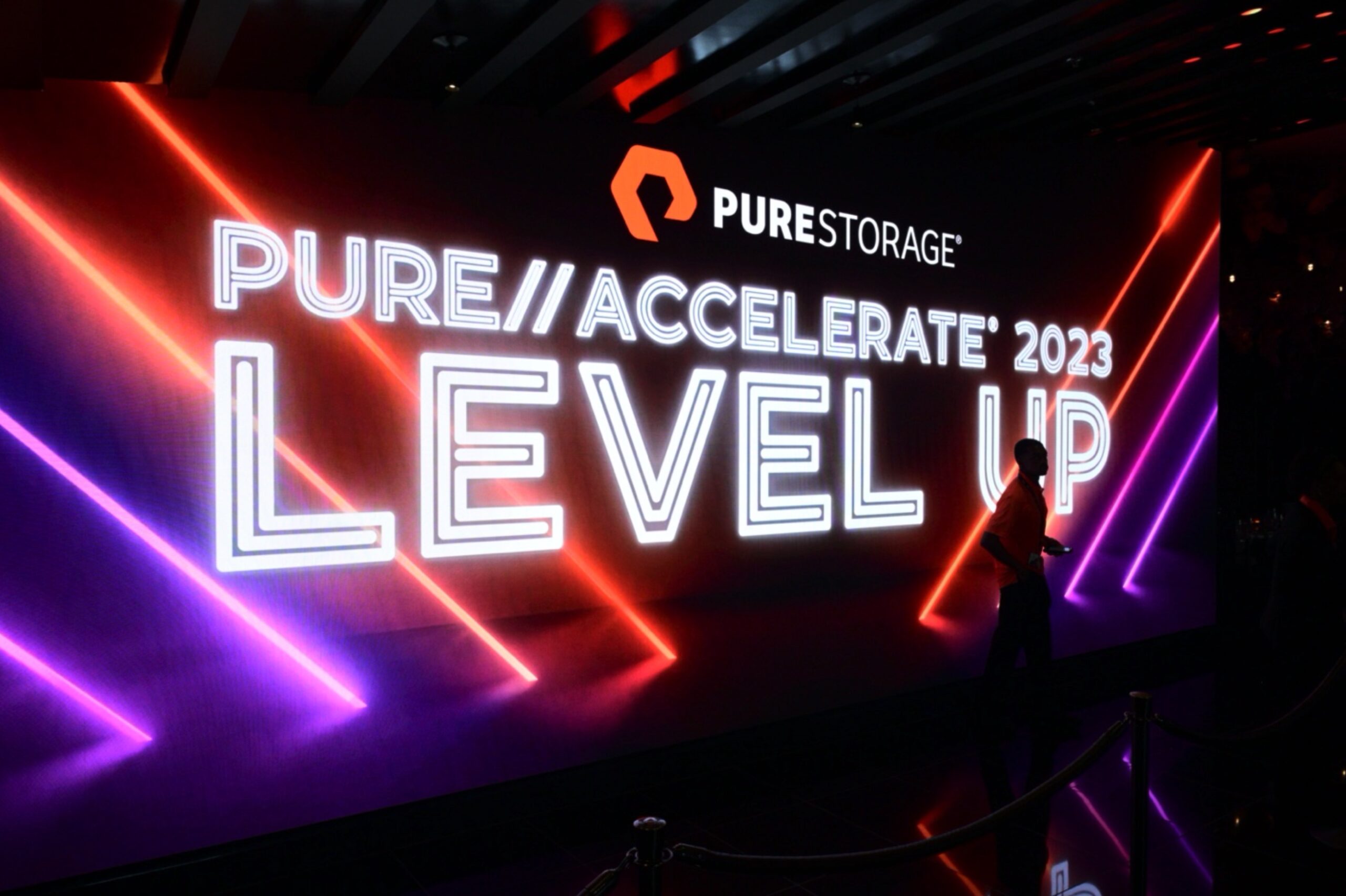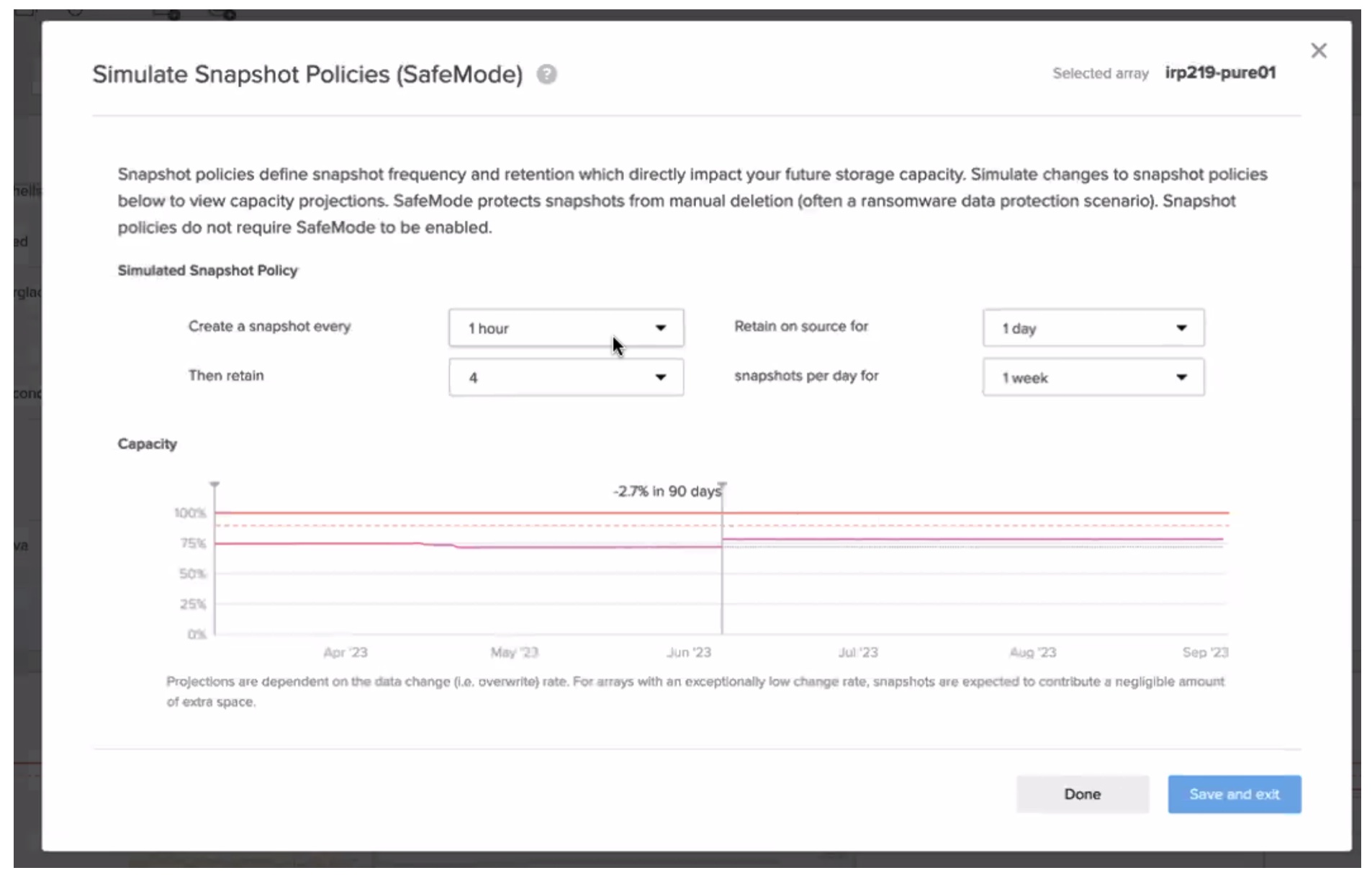Over the past few years, we’ve seen the rise of hybrid cloud as more organizations realize that they don’t need to make a decision to use either public or private cloud, but can make a decision about which to use based on specific application needs. This makes sense as not all workloads are a good fit for either public or private cloud. Need to scale quickly and control resources on demand? Then you would likely choose public cloud for that application. Do you have a large amount of data in your own data center that needs to be close to your users due to latency concerns? Then you are most likely sticking with private cloud for applications using that data set.

Guess who’s got big ideas for your hybrid cloud. You do! Pure Storage wants you to achieve them your way.
Increasingly, we’ve seen a trend of data being used in both scenarios and a need to quickly provision storage and manage data in both public and private cloud, leading to a truly hybrid cloud. This has led to a challenge when managing data that can span both public and private clouds. Can you easily replicate data from one cloud to another? How do you ensure it is up to date? Are you able to effectively protect that data? If you are using a combination of enterprise storage on premises and native cloud storage solutions, then management can become cumbersome as the management tools and APIs will be different depending on which data you are working with and where it is located.
These are just a few examples of the challenges that exist when building a hybrid cloud. Often times the solution does not reside in native cloud services, but in third party services.
Recently Pure Storage announced their entry into the cloud with a suite of cloud data services: Cloud Block Store, Cloud Snap, and StorReduce. Their intent is to enable customers to build the hybrid cloud they need, which will allow them to run the applications they want, in the cloud they want whether it is public or private. Cloud Block Store in particular enables customers to build their hybrid cloud by using the same data management software both on premises and in AWS.
What is Cloud Block Store?
Backed by Amazon EC2 and EBS, Cloud Block Store runs Pure Storage software in the cloud. For existing customers, the experience will be very familiar as it will be delivered by the same Purity OS that powers their on-premises storage.
Many of the familiar features that customers know and love are present as well as a few new surprises. This will enable new workflows for provisioning of storage and reduce friction for development and operations teams as they build their hybrid cloud.
Why It’s Good for Customers
The release of Cloud Block Store is significant for multiple reasons. Aside from having the same familiar storage with the same familiar features, interface, and API, Cloud Block Store also brings numerous features that are not available with native AWS storage services.
Space saving features such as deduplication, compression, and thin provisioning are helpful in saving not only space but consumption charges from AWS. Amazon is likely running such services on the back end of services like S3 or EBS to save themselves money, but customers are charged for the amount of storage they provision, no matter how much storage capacity they are actually consuming. Utilizing the previously mentioned space saving features in Cloud Block Store to save the amount of AWS capacity consumed helps solve this shortcoming for customers.
Also provided by Cloud Block Store is multi-availability zone (AZ) high availability (HA). This will allow a customer to ensure that their data is available outside their AZ, but within their AWS region. AWS EBS is replicated within an AZ to ensure the durability of customer data. This is a table stakes feature that delivers the advertised level of durability to AWS customers. But replication of data is entirely out of the customer’s hands and if a customer wants more control they will need a third party service. They will need Cloud Block Store.
Familiar application deployment models make construction of a hybrid cloud easier as well. Developers and engineers can use the same APIs and interface that they are accustomed to. Automation can be powered by either VMware vRealize Automation (vRA) or AWS CloudFormation.
AWS Outposts: Competitive or Complimentary?
AWS recently announced AWS Outposts, as an offering to help customers build their own private cloud as well. An outpost is AWS hardware running on a customer’s premises that will run in two variants: AWS native and VMware cloud. The AWS native variant will provide familiar services such as EC2, EBS, and RDS among others. The VMware variant will deliver the same VMware Cloud on AWS SDDC experience that is available in Amazon’s cloud in a customer’s premises.
This is essentially Amazon conceding that the hybrid cloud is not only a legitimate strategy for an enterprise infrastructure, the preferred architecture. AWS will regularly release new services, but one as substantial as the outpost would only be released after careful analysis and consideration. Such a product release would only occur once leadership determined that they could reasonably expect to sell enough units to make it either a profitable endeavor or enough of an attractant to bring more enterprise customers to their other services. This effectively validates hybrid cloud product releases such as Pure Storage Cloud Data Services.
At the same time though, it may appear to some that this is a competitive offering to Cloud Block Store and Pure Storage in general. If a customer can now build a hybrid cloud utilizing AWS native or VMware cloud services, both on-premises and in the cloud, is there still a need for a storage from a company like Pure? Maybe not if you are a customer with limited needs who would not need to augment the storage that is available either in the cloud or via the AWS outpost. But AWS Outposts are a sophisticated product that is clearly meant for a sophisticated enterprise.
AWS customers who have an Outpost on-premises will likely need to take advantage of advanced data services needs that are available in Cloud Block Store. The aforementioned ability to take better advantage of capacity in the AWS cloud will also be beneficial to Outpost customers. Even customers running the VMware variant of the Outposts will benefit if they are already a VMware customer. If the amount of storage in Outposts is too limited, customers could mount block storage from an on premises Pure array. The bi-directional replication and migration features of Cloud Block Store means that customers can move and protect data across the entire footprint of their hybrid cloud. This will be especially useful for customers who already have an existing Pure Storage footprint in their data center will likely not wish to abandon a platform they have already achieved success with. After all, if an enterprise is likely to adopt a hybrid cloud, then they are likely to select the products that give them the most flexibility in building the cloud that functions for their use case.
Ken’s Conclusion
Cloud Block Store is a product that Pure needed to release. Public cloud adoption is growing as part of an overall hybrid cloud strategy within many organizations. If Pure does not help bridge the gap between on-premises and public cloud for both existing and future customers they will have missed an opportunity. Many would argue that this is not a cloud native architecture, but it functions as traditional data center storage in the cloud. This provides value to organizations that do not necessarily want to rewrite or refactor existing applications just to make use of the public cloud. We will see success out of companies like Pure who continue to deliver the hybrid cloud in a manner that is adaptable to their customers’ needs.




